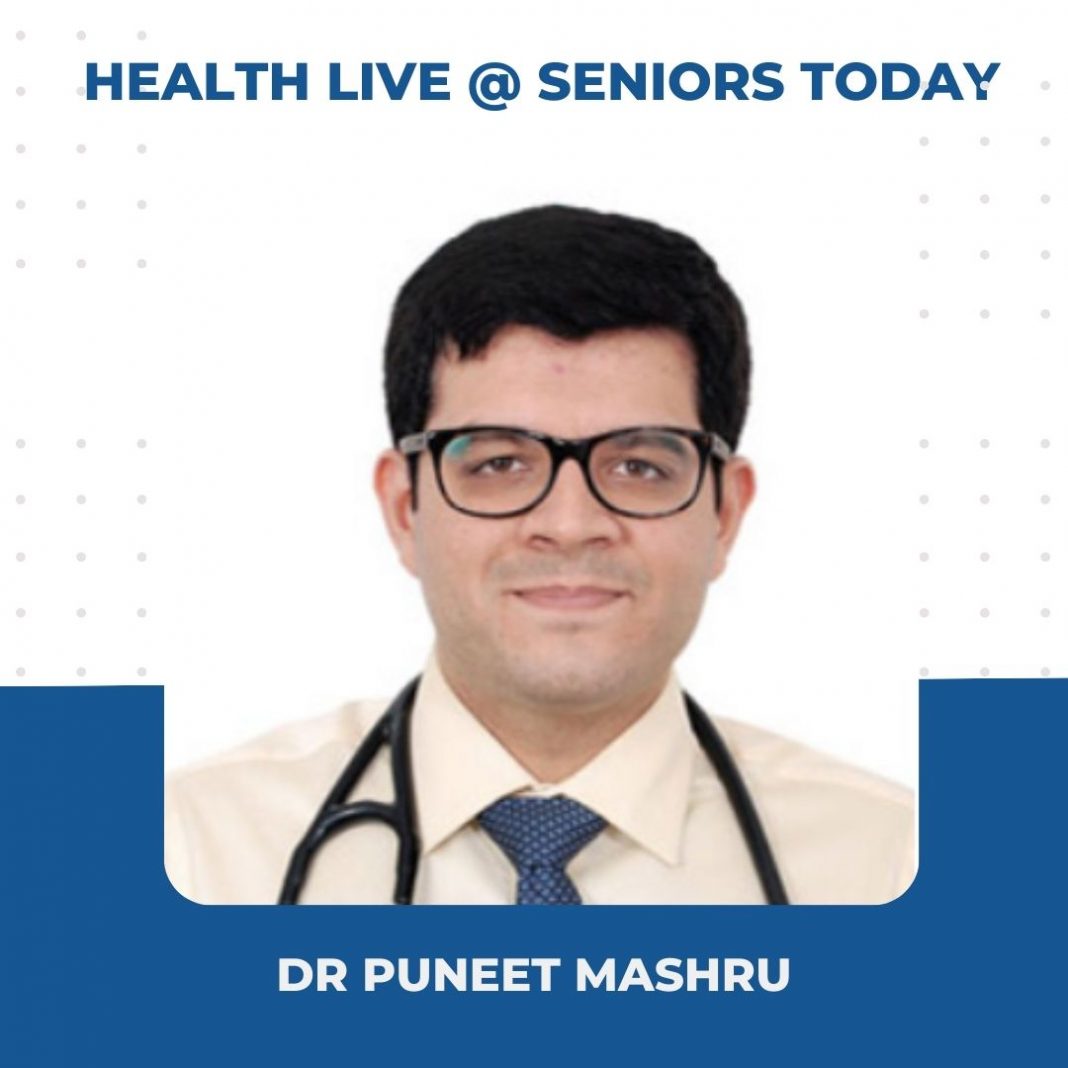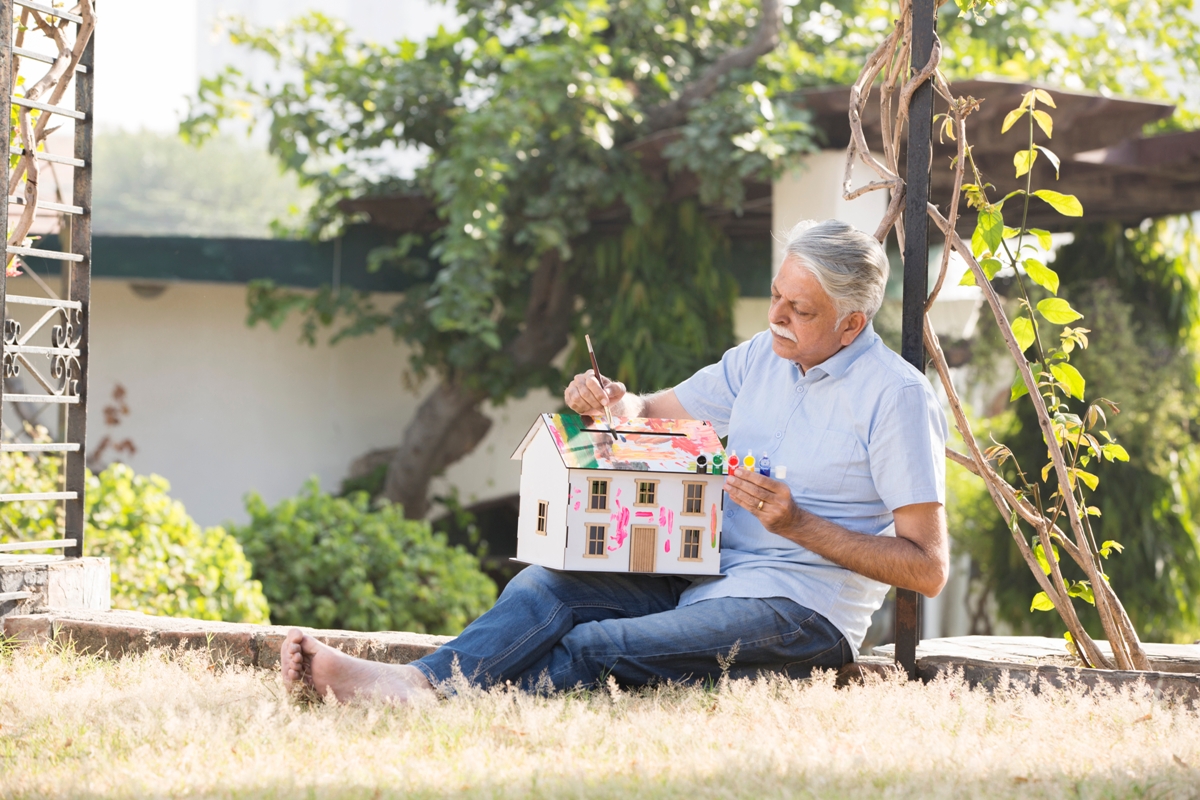On Saturday, January 23, Seniors Today hosted a Health Live session with Leading Rheumatologist Dr Puneet Mashru who spoke and addressed questions on Rheumatoid Arthritis for senior citizens. Dr Noor Gill captures key takeaways from the session
Dr. Puneet Mashru is a Consultant Rheumatologist practising in Mumbai. He completed his superspecialty training in Rheumatology from the PD Hinduja National Hospital & Research Centre with additional training at Christian Medical College, Vellore and NNUH, UK.
He has special interest in Rheumatoid arthritis, Ankylosing spondylitis, Psoriatic arthritis, Connective tissue diseases (Lupus, Sjogrens, Scleroderma etc), Fibromyalgia, Gout and Vasculitis.
Here are takeaways from his session:
- Rheumatology deals with diseases of the joints, bones and multisystem disorders which are usually autoimmune in nature; conditions like rheumatoid arthritis come under rheumatology. But then the question arises, if you’re dealing with diseases of the joint and bones, shouldn’t that come under orthopaedics? The difference is that orthopaedicians deal with injuries, trauma of the muscle, bone and tendons, they do surgeries and treat fractures. Though there may be a little bit of an overlap, but the injuries, trauma, surgeries are dealt by orthopaedicians while other bone and joint disorders such as rheumatoid arthritis are dealt by rheumatologists.
- There are more than 100 types of arthritis. They are broadly divided into two categories, which are:
- Inflammatory: it can be due to autoimmune conditions that are causing inflammation in the joints and the symptoms are more during rest and are seen more during the moring time, and as the day progresses the pain gets better.
- Non- inflammatory arthritis: most common one is a wear and tear kind of arthritis which is called osteoarthritis which is caused by ageing. In osteoarthritis the pains are typically in the knee joints, sometimes in the hands, in the hips.
- Symptom of a degenerative or an non-inflammatory arthritis is that the pain is aggravated during exertion and are relieved on rest.
- Typical symptoms of RA:
- Joint pains, equal on both sides, commonly involving the joints of the wrist, fingers, shoulders and knees, i.e both large and small joints but predominantly the small joints.
- Swelling and redness in the area of the affected joint along with pain.
- Joint stiffness. This is a very important. Rheumatoid patients, when not treated, have joint stiffness in the morning, for 1-2 hours, they need a warm water bath to have more movement in the joint, and after 1-2 hours, they get back to full functions.
- Loss of full range of motion in the affected joint.
- Arthritis is a very broad term, if we talk specifically in terms of rheumatoid arthritis, it occurs due to a genetic predisposition, there is probably something in the environment around that might trigger the condition, so there is nothing for us to do to avoid arthritis, no specific precautions that we can take to prevent it, but we can be aware of the symptoms and diagnose and treat it early.
- Rheumatoid arthritis does not have a cure, but it is not all bad news, it is like thyroid or diabetes, there are effective medications to control the disease and if the patient is on medication, they will go on with their lives without having any joint pains or discomfort. They need to be on medication to control the disease, but no, there is no definitive cure. As far as the side effects of taking a long term medication are concerned, the way Dr Mashru looks at it is, the side-effects of the medication will probably be 5% but the side-effect of the disease is 100%, i.e it will damage the joint. As far as the 5% is concerned, if we keep a close watch, we can keep them under control, get regular blood counts, liver enzymes, creatinine, and keep a watch on those parameters. As long as these parameters are well within the normal limit, we can continue the medication as such.
- You can consult with your doctor and alter the dosage of the medication you are taking to a level where your symptoms are well-managed. But if you have your dose tapered and adjusted and you still continue to have the pain/ start having pains again, it is most likely because of the disease.
- Diagnosis of rheumatoid arthritis is a clinical diagnosis, which means that we don’t treat the lab reports, we treat the patient. So, if you get your rheumatoid arthritis factor (RAfactor) test done, apart from the test, we also take into account the clinical presentation of the pain, the findings on examination as well. The RA factor test is not like your blood sugar test, for example, if someone’s reports show a high blood sugar level, but they have no symptoms, they are still considered diabetic and they need to be treated. That is however not the case in patients of rheumatoid arthritis, the lab investigations are to be taken into consideration along with the clinical context and picture of the patient and then treat it. Almost 35% patients have a negative RA factor test but still have symptoms. And if we check the normal population, almost 10% of the population will have a positive RA factor test without any symptoms.
- Recommendations for a patients recently diagnosed with arthritis:
- You need to start your treatment at the earliest. There is a lot of misconception that allopathic practitioners will only be give medications to control the pain i.e painkillers and steroids for the treatment. But that is not the treatment; the treatment chiefly includes disease modifying anti-rheumatic drugs (DMARDs) which control the disease. In the beginning of the treatment, you may be prescribed painkillers, and might even give, occasionally and for a very short duration, steroids, but that is only until the DMARDs start acting, for symptomatic relief only. DMARDs are very effective and have a good safety profile.
- If treated early, they have a great response and do not lead to any deformities.
- Exercise and physiotherapy is very important. Patients with RA are at a higher risk for cardiovascular diseases as well, so you should exercise daily, jog, brisk walk, etc.
- In the initial days, after the diagnosis, physiotherapy is very important, because when the joints are swollen, the muscles around the joint become weak, you need to strengthen those muscles, and physiotherapy is important, but it cannot reverse disease.
- Arthritis can occur at any age. From the age to 6 months to 60 years. If you are someone who has joint pain, regardless of the age, we have to differentiate whether the pain is inflammatory or non-inflammatory and then move forward with the treatment once the diagnosis has been made.
- If you are a patient with rheumatoid arthritis, you can take the vaccine; in fact you must take the vaccine. There are 2 vaccines available in the market right now, one is Covishield and the other one is Covaxin. Right now, Covaxin is not recommended for patients with immunocompromised conditions. If you are on medication for rheumatoid arthritis, Covaxin is not recommended, but you can and you should get Covishield.




